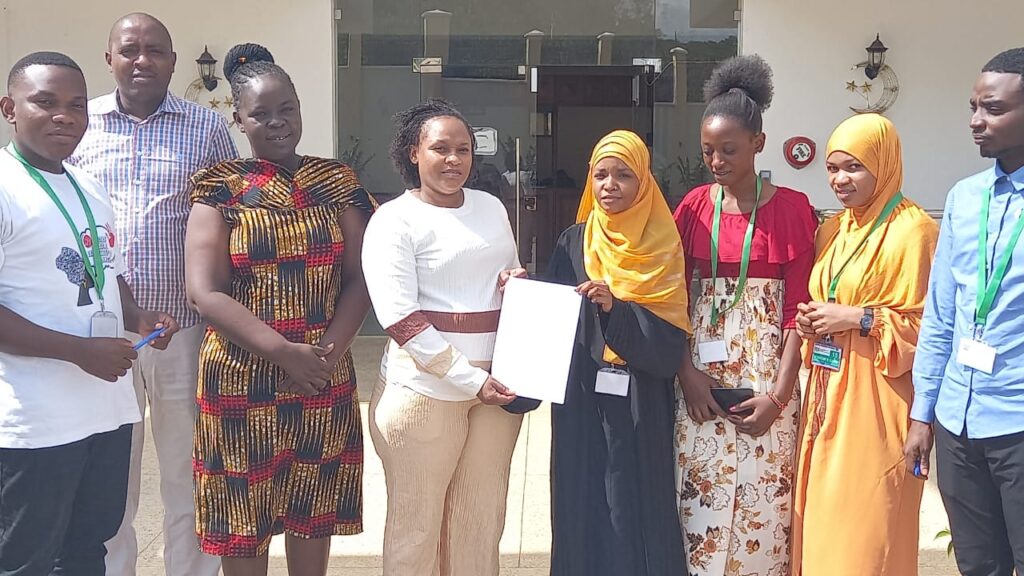By Reporter
A section of Kwale youth are pushing for the allocation of funds to effectively implement the county Sexual Gender Based Violence Preventive Protection Act, 2023.
According to them, despite the Act being passed last year, it has not yet been implemented.
The cases of teen pregnancies and GBVs are also on the rise.
According to the KDHS Report 2022, Kwale County has a 15% teenage pregnancy rate, which means that approximately two out of every ten girls will become pregnant before the age of 18.
The group led by the Deutsche Stiftung Weltbevölkerung (DSW) project officer Stephen Kibindio decried that the county executives have further failed to allocate resources in the budget estimates for the financial year 2024/2025, raising concerns about the seriousness of fighting GBVs in the region.
“We are saddened by the county’s failure to budget for the Kwale SGBV Preventive Protection Act, 2023, given that GBV cases are reported every day,” he said.
Kibindio said to great disappointment all the development allocated resources in the budget estimates for FY 2024/2025 have been set aside for the construction of a social hall, twin toilets, waters, purchase and fencing of football fields among others.
The group now wants the county to reallocate 30 percent of the development money from social service and talent management towards the construction of SGBV recovery centres and safe houses.
Kibindio said they also request the training of the healthcare workers to adequately offer responsive services to victims and survivors of SGBV and training on case management, evidence collection, processing and storage.
The officer said as civil society organizations they will keep on pushing the county to budget for the proper enactment of the gender bill to quell GBV cases in the region.
Kibindio said victims of gender-based violence are continuing to suffer yet there is an ACT that is supposed to protect them.
He said many SGBV court cases don’t see the light because of intimidation and interference of evidence by the culprits.
The officer said that the victims also suffer from mental health issues because they are exposed to the same environment and interact with the perpetrators daily, exacerbating their trauma.
He said with the Gender Act, GBV victims can safely be accommodated and taken through counselling and legal services to help in their recovery.
Kibindio said that the implementation of the Act is critical because many GBV survivors are denied their rights.
He said that Kwale is vast and that some police stations and health centres are located far away, limiting GBV victims’ access to better treatment, reporting, and fair justice.
“The Act calls for the establishment of recovery centres in each sub-county to assist in providing legal and health services to victims of sexual abuse,” he said.
An adolescent champion Ashura Bakari said the cases of GBV are dire at the grassroots level.
She claimed that victims are forced to forgive perpetrators in exchange for a small sum of money.
Bakari said that Kangaroo courts are destroying the lives of girls by resolving GBV cases outside of the legal justice system.
She said pushing for the allocation and implementation of the SGBV Act will address many challenges that girls and women go through.
Chair of the County Assembly Gender and Special Interest Committee Rachael Mutisya said that the process of implementing the Act is ongoing.
She said the county is determined to construct recovery centres and safe houses to firmly support victims and address the GBV menace.
“As the county assembly, we are working to implement the SGBV Act, which has many benefits,” she said.
The chair said they will lobby for its allocations and ready the board that is supposed to oversee it.
She said the names of the board members are yet to be vetted and officially published before the Act becomes fully effective.


